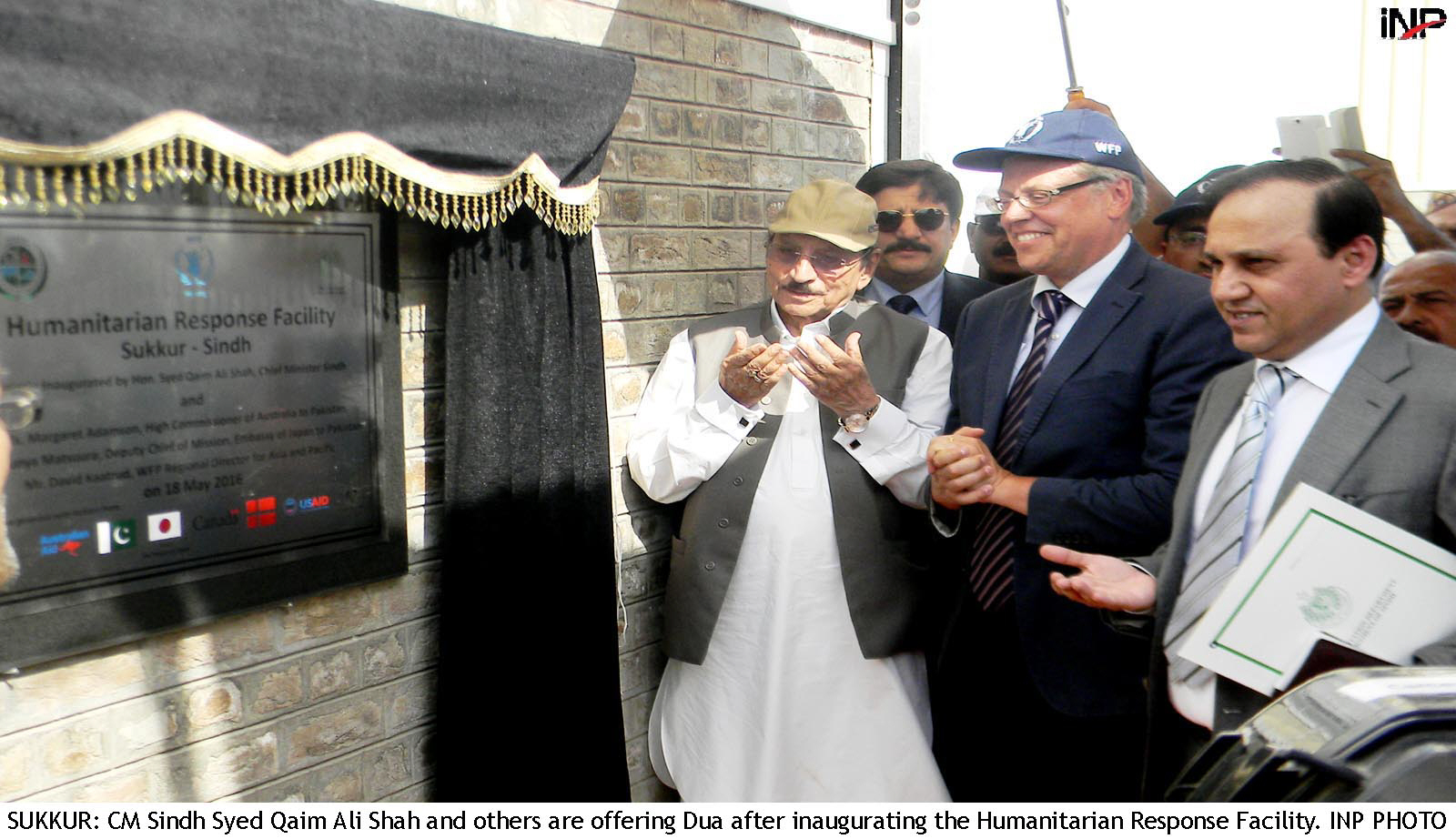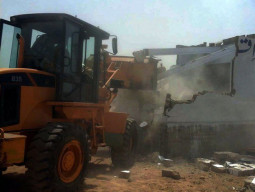
Briefing the audience at the ceremony about the facility, WFP, Pakistan, representative Lola Castro said that the organisation has been working with the Pakistani government and international donors since 2013, to establish a network of humanitarian hubs in eight strategic location across the country. She added that such state of the art relief hubs have already been inaugurated in Quetta, Muzaffargarh, Lahore, Hyderabad and Peshawar.
Change in climate, which is resulting in unpredictable weather patterns and extreme conditions, has also affected Pakistan, said Castro. She added that enhanced emergency preparations are needed to deal with natural disasters and response management measures should be near such communities where flooding periodically occurs. In this way more lives are saved she said.
"I am very encouraged to already see tangible results of this excellent partnership in protecting lives and livelihoods of the communities [living] in areas where the humanitarian hubs have already been constructed," she said.
The $3.5-million facility, which covers 8.7 acres, has three large warehouses for general cargo and one smaller climate-controlled warehouse for more sensitive items, such as medicines and food items and a covered storage space for storing 3,200 metric tons of goods.
The government has provided land to the WFP to build such eight humanitarian facilities across the country in disaster-prone areas. The organisation is also responsible for the management and staffing of these facilities. The project has been implemented in coordination with the national and provincial disaster management authorities and with funds from Japan, Canada, Australia, The Netherlands, Denmark and United States.
Speaking at the inauguration ceremony, Sindh Chief Minister Qaim Ali Shah said that the super flood of 2010 had caused irreparable loss to the infrastructure in the province. He was of the opinion that we should take preventive measures to minimise the effects of climate change, keeping in view the changing weather pattern. Shah said that, in case of any emergency, the facility will not only be beneficial for people of upper Sindh but also for Southern Punjab residents and the bordering areas of Balochistan.
Published in The Express Tribune, May 19th, 2016.

















COMMENTS
Comments are moderated and generally will be posted if they are on-topic and not abusive.
For more information, please see our Comments FAQ